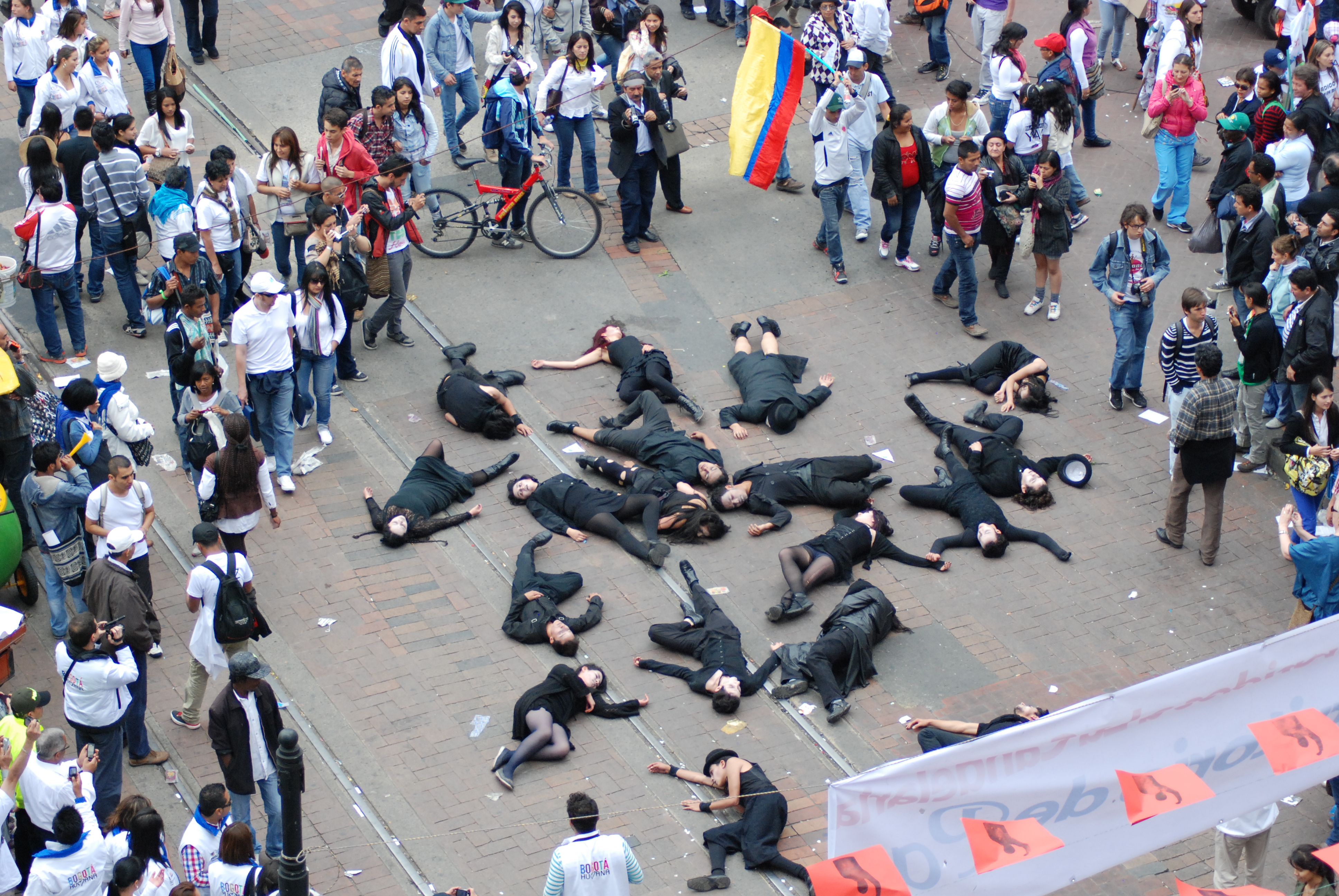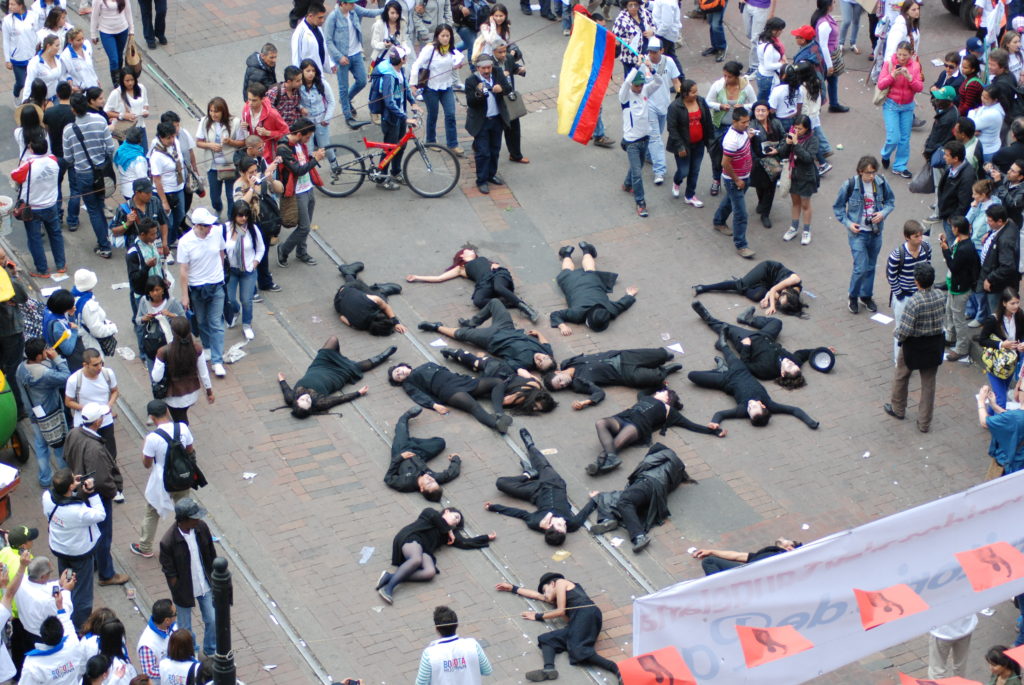On the Assassination of Social Leaders in Colombia

Elkin Fabian Toro was a peasant leader and used to work for a community radio station. His body was found on Saturday, February 17 in the municipality of El Tara, in the department of Norte de Santander. Sandra Yaneth Luna was a peasant leader and the president of the Board of Communal Action in Tutumito Carbonera, a village within the municipality of Tibú, also located in Norte de Santander. She went missing in September of 2017, when she was kidnapped by armed men who broke into her home. She was recently found dead. No one knows yet who the perpetrators of this crime are. In 2016, Luna had apparently placed a complaint to authorities after being a victim of extortion, so there might be a connection between this complaint and the subsequent assassination. As of February 7, 2018, Luna is one of two social leaders that have been victims of violence in this month in Colombia. The other leader is María Yolanda Maturana, an environmental leader who was assassinated by two hooded men on February 2 in the municipality of Pueblo Rico, located in the department of Risaralda. Maturana was known for denouncing illicit mining and the contamination of hydraulic sources.

The assassinations of Elkin, Sandra and María Yolanda are not isolated incidents. In January of 2018, the assassinations of 22 social leaders were confirmed. Just the year before, these assassinations of social leaders were rampant, although different sources were unable to confirm an exact number. The main sources reporting these crimes have been local social organizations such as the political group Marcha Patriótica and the organization Indepaz (Institute for Development and Peace), media outlets such as the newspapers El Tiempo and El Espectador, and international organizations such as the United Nations. The magazine ¡PACIFISTA!, which started to count the number of assassinations since December 1, 2016, the day when the implementation of the peace agreement signed between the Colombian government and the FARC-EP began, recorded a total of 67 assassinations at the end of 2017. According to Indepaz, 205 social leaders and human rights defenders have been assassinated in Colombia since the beginning of the implementation of the Peace Agreement. Colombia is now listed as one of the three most dangerous countries for environmental leaders in the world by Global Witness.
So far, the Government’s response when it comes to this phenomenon has been rather negligent. In December 2017, Minister of Defence Luis Carlos Villegas claimed in an interview with Noticias Uno that the great majority of social leaders in the regions are “the fruit of a subject of boundaries, of a subject of faults, of a fight for illicit rents.” Villegas further said that one in two assassinations of leaders “has a judicial explanation,” that “no organization is assassinating social leaders,” and that the assassinations of leaders is not a new phenomenon, but rather seems like one because the count was only started recently. Despite Villegas’ claims, Indepaz stated that by the end of 2017, the assassinations of social leaders had increased by 45%. Hopefully the Government will be able to provide concrete security measures to the different social leaders that have been threatened and have not yet been killed as soon as possible.
Edited by Gracie Webb
